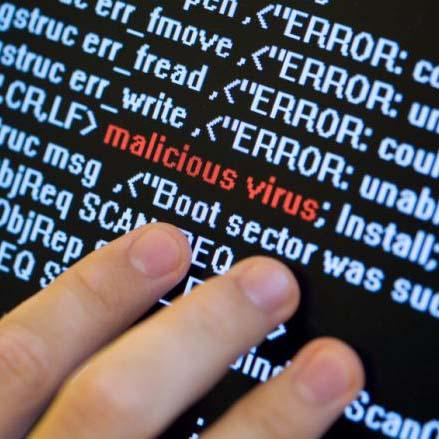 Starting last fall, a group of computer science students began collaborating in a new research lab focused on cracking the latest problems in computer and network security.
Starting last fall, a group of computer science students began collaborating in a new research lab focused on cracking the latest problems in computer and network security.
Known as Breakerspace, the lab is the brainchild of Dave Levin, an assistant professor of computer science with an appointment in the Maryland Cybersecurity Center and the University of Maryland Institute for Advanced Computer Studies.
Levin conceived the idea for the lab, in part, to give more computer science undergraduates an opportunity to do research in addition to their classroom studies.
“As chair of the Computer Science Honors program, I realized there are many students—Honors, ACES [Advanced Cybersecurity Experience for Students] and otherwise—who want to do research, but there are simply not enough faculty cycles to support all of them,” Levin says. “The only way I could envision scaling up is with group research projects. So that is our main goal with Breakerspace—to directly support group undergraduate research projects in my area of research, which is systems and network security.”
Levin says the endeavor is already working out well. There were about 20 undergraduate students—plus six graduate mentors—using the lab last semester, and he was able to interact with all of them in small groups.
“We hope that Breakerspace can serve as a pilot for mentoring groups of undergraduates in other areas that we excel in, like machine learning, computer vision and computational theory,” he says.
Josephine Chow, a senior double majoring in computer science and mathematics, has been with Breakerspace from the beginning. Her research in the lab is focused on the development of a VPN detection and geolocation project.
Chow says she discussed the project with a recruiter from a government law enforcement agency. The recruiter—a criminal investigator—was very interested in the project, Chow says, as it could potentially help with cybercriminal investigations.
Chow, who was in the ACES Honors program and is now minoring in ACES, says she enjoys working in Breakerspace.
“Working with Dave is great—he is extremely encouraging and hands-on when it comes to helping us with our research,” she says. “And I think Breakerspace is the perfect place to conduct research because it not only provides a quiet, dedicated space to do work, other than the library, but it also fosters collaborations with other students.”
Yaelle Goldschlag, a sophomore who is double majoring in computer science and math, says she began working with Levin as a freshman and was excited to get involved in Breakerspace.
“I enjoy talking to other students who are involved in research projects,” says Goldschlag, who is also in ACES. “It’s a really neat and interesting environment, and I feel like I am learning so much from my peers.”
Goldschlag, along with her Breakerspace graduate mentor Richard Roberts, recently presented a poster on measuring HTTPS certificate issuance to impersonating domains at the ACM Internet Measurement Conference in Boston— the premier conference on Internet measurement. Two other Breakerspace students also presented posters at the event.
Levin says he is proud of what his students have already managed to accomplish. Most recently, a paper co-authored by Levin and Breakspace students George Hughey (lead author), Stephen Herwig, Katura Harvey and Roberts was accepted to the Network and Distributed System Security Symposium (NDSS) 2019, which will be held February 24–27 in San Diego.
“The projects from this space have already proven successful with real-world impact,” he says. “We have several publications already, some work that has attracted interest from industry and defense—and we’re only a few months in!”
Computing & Security